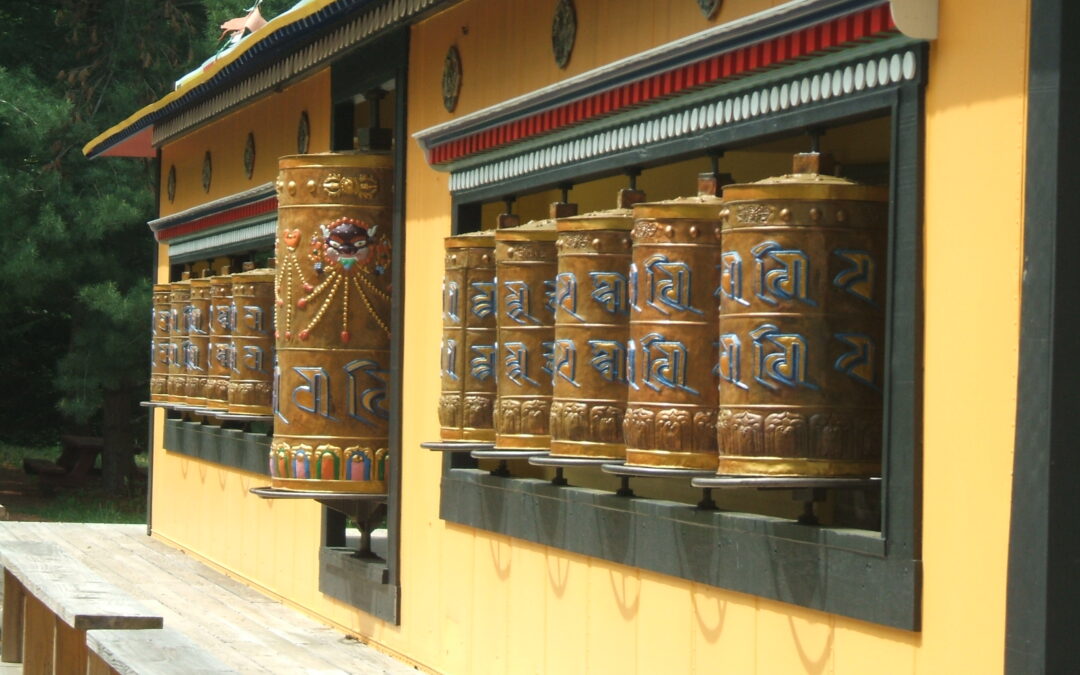Finally! After over eight years, I was able to return to a favorite old relaxing ground, the Tibetan-Mongolian Buddhist Cultural Center, near Bloomington, Indiana. My prior visit was the last week of October 2013.
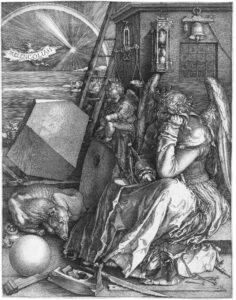
An exquisite laziness prevailed, the priority being to decompress and breathe in the beauty all around. Apart from many walks around the grounds, I read every evening, and resumed work on a vacation-only coloring project.
I really love this place, just being here brightens every day. Still, in every aspect, its transient, impermanent nature is starkly clear. Everything I like here serves as a reminder of just how temporary it all is. Hence, a touch of wistful, bittersweet melancholy.
Some of the prayer flags are tattered and need replacing; some strands of them have come loose and are trailing on the ground.
I greatly enjoyed walking the meditation path which skirts the perimeter of the 108-acre property. Along the path on the south ravine, I heard a disembodied voice: a recording of someone reading from Buddhist sutras. It was playing on a little solar-powered, lotus flower-shaped speaker planted in the ground. In all, I counted five of them along the path but, apparently, only the one was working.
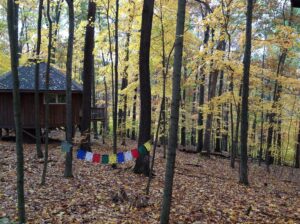 This place has seen some hellacious wind storms. There was one the year before our first visit in spring 2012. On a forest walk, we saw some huge trees blown over by it. Another wind storm struck just a few days before my arrival, knocking a large branch off a tree right next to the Cultural Center, and it punched a hole in the roof, which caused three trees to be cut down as a precaution.
This place has seen some hellacious wind storms. There was one the year before our first visit in spring 2012. On a forest walk, we saw some huge trees blown over by it. Another wind storm struck just a few days before my arrival, knocking a large branch off a tree right next to the Cultural Center, and it punched a hole in the roof, which caused three trees to be cut down as a precaution.
For me, the flip side of Melencholia is Comfort Music. Music is a sanctuary from all that’s crazy. I’ve been listening to a small set of albums somewhat obsessively over the past few months, to the exclusion of just about everything else. This includes two albums I’ve been overjoyed to reconnect with over twenty years on: Robert Gass’ Heart of Perfect Wisdom and Michal Hromek’s Celtic Guitar, along with just about everything from Eric Tingstad and Nancy Rumbel, and from Shelley Phillips. A happy new discovery was recently added: Steve Roach’s Prayers to the Protector with Thupten Pema Lama. So this Comfort Music was my soundtrack both on the road and onsite.
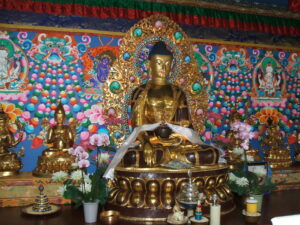
In the yurt, I also heard Tibetan Bells II and III, and a handful of albums from Tibetan singers and monks. The wonderful album Tibet, Tibet by Yungchen Lhamo was playing when a young monk came by, responding to my request for technical assistance. He instantly recognized the album and was clearly pleased to hear it, and we struck up a very nice conversation.
I spent some quality time with the temple’s splendid deity of Lord Buddha, and the gift shop – with its enormous collection of singing bowls – is always fun. This time I picked up a 40th-Anniversary T-shirt (the Center was founded in 1979) and some wonderfully strong, smoky incense.
Getting more into the spirit of the place, I circumambulated the two stupas. It’s said that this accumulates merit; certainly worth a try. It was the same with the prayer wheels. I would spin them each three times, chanting Om mani padme hum. It’s said that the accumulated merit can be gifted to all sentient beings. I hope it’s true.
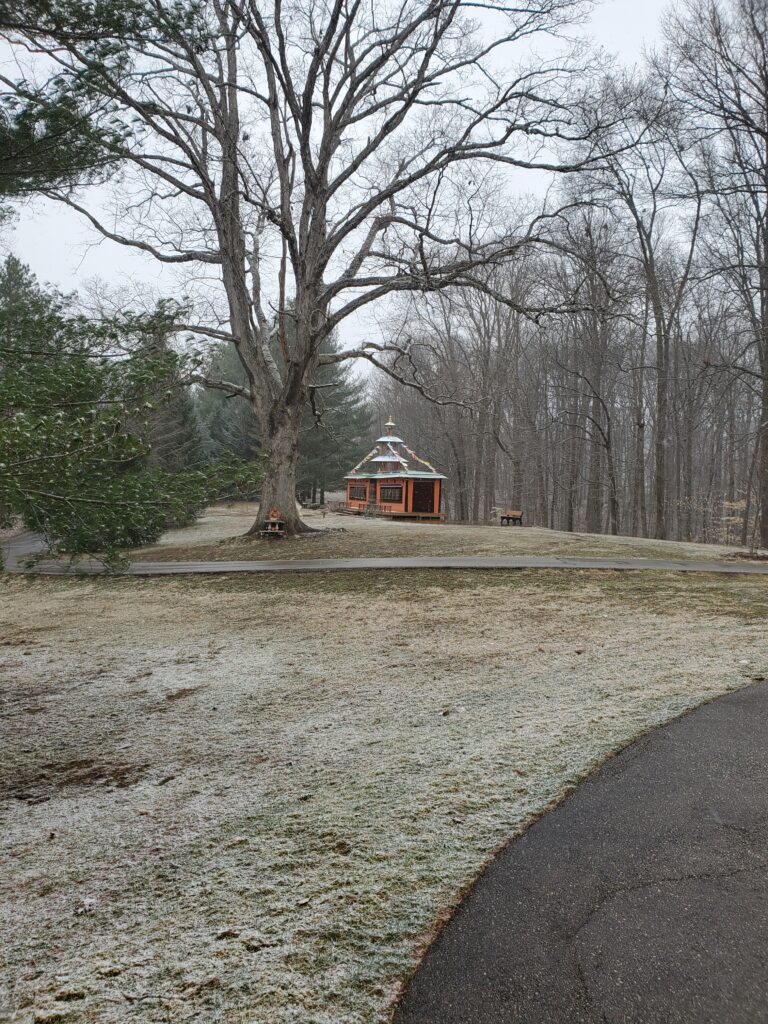
The sense of transient, fragile beauty is so strong here that it’s all too easy to get a little sentimental about it, as I sometimes did during the four days and nights alone. My reading of Kawabata and Bashō each evening certainly reinforced that theme. As Lord Buddha kindly taught us, such material attachment is the cause of suffering.
So we must try to step back from it, and not be drawn in. This place is a joy in so many ways – and it’s all temporary. Okay: we can appreciate and be grateful for it while it lasts, but spare ourselves useless grief at the inevitable. All (material) things must pass. What is essential, however, remains.
